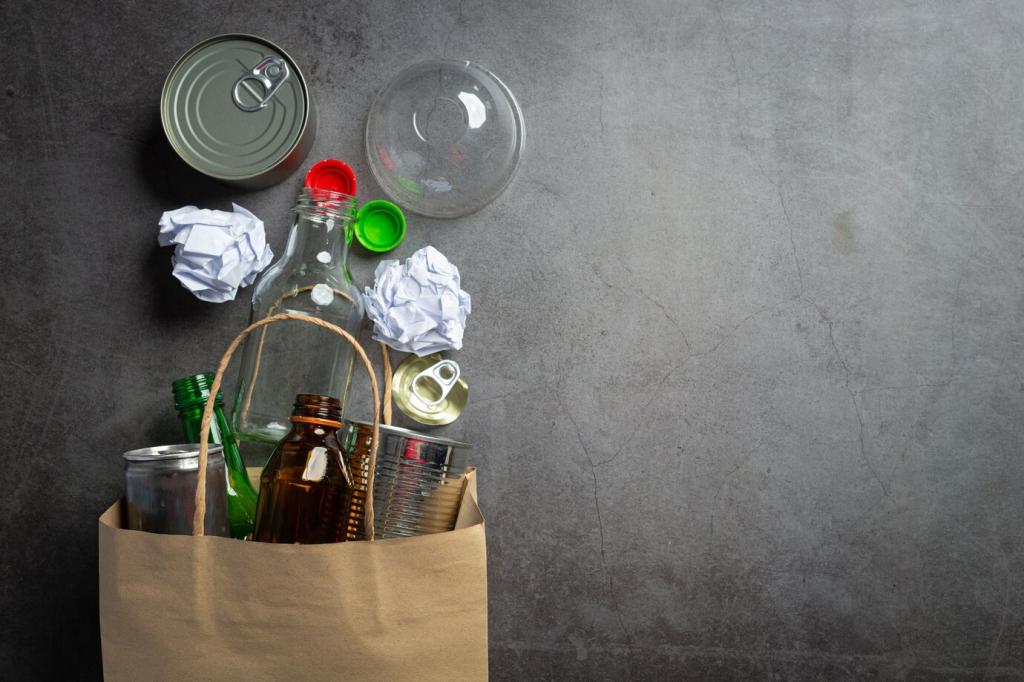Recycling Innovations for Households
Discover how new and emerging innovations are transforming recycling practices at home, making it easier, more efficient, and more sustainable than ever before. From smart technology and advanced materials to creative behavioral shifts, explore the exciting ways households are contributing to a cleaner, greener planet through innovative recycling methods.
Smart Recycling Technologies
Automated Sorting Systems
Automated sorting systems are revolutionizing how households separate and process their waste. Smart bins equipped with cameras and sensors can identify different types of materials, guiding users with lights or notifications about where each item belongs. These systems drastically reduce human error and contamination rates, ensuring recyclable materials maintain their integrity for reuse and manufacturing. Some systems even offer feedback via smartphone apps, tracking recycling habits and suggesting improvements. By making sorting intuitive and nearly effortless, automated systems remove guesswork and encourage consistent participation in recycling efforts, transforming waste management into a seamless part of daily life.
Recycling Tracking Apps
Recycling tracking apps empower households to take control of their environmental impact by providing real-time feedback and guidance on recycling practices. These apps can scan product barcodes to determine recyclability, offer location-based information about local recycling rules, and remind users when it’s time to put out their bins. By gamifying the process and offering achievements or rewards, these applications motivate users to recycle properly and consistently. Over time, they help build awareness about sustainable actions, make recycling practices easier to follow, and encourage a sense of accomplishment and community among eco-conscious residents.
IoT-Connected Recycling Bins
Internet of Things (IoT)-connected recycling bins represent a leap forward in household waste management. These smart bins are equipped with sensors that monitor waste levels, automatically alerting residents or municipal services when they need to be emptied. They can also detect contamination, sending notifications to users if a non-recyclable item is thrown in. Over time, this data helps households gain insight into their waste production patterns, allowing for more mindful consumption and disposal. By integrating with other smart home devices, IoT bins pave the way for a fully connected, efficient, and responsible approach to recycling at home.
Innovative Materials and Packaging
Compostable Packaging
Compostable packaging offers a sustainable alternative to traditional plastics, enabling households to divert more of their waste from landfills. Made from renewable resources such as plant fibers or bioplastics, this packaging breaks down naturally in composting environments, turning into nutrient-rich soil rather than long-lasting pollution. For families with home composting systems, compostable packaging can be included alongside food scraps and yard waste, simplifying disposal. As technology advances and these materials become more cost-effective, more households are empowered to participate in closed-loop waste cycles, reducing their ecological footprint.
Easily Separable Packaging
One of the main barriers to recycling at home lies in products with mixed-material packaging that is difficult for consumers to separate. Innovations in packaging design now focus on making components like plastic coatings, metal lids, and cardboard sleeves easy to remove from one another. Clear labeling and perforations help guide users, ensuring materials can be sorted and entered into the correct recycling streams with minimal effort. These user-friendly designs not only boost recycling rates but also improve the quality of recovered materials, supporting a more circular economy within the home environment.
Refills and Zero-Waste Packaging
Refillable containers and zero-waste packaging concepts are gaining traction as households seek ways to reduce single-use items in their lives. Brands now offer bulk refill stations and durable, reusable packaging that can be returned, cleaned, and refilled multiple times. This shift encourages families to rethink how they purchase and use everyday products, decreasing reliance on disposable packaging and stimulating demand for sustainable options. By adopting refill solutions and zero-waste philosophies, households can dramatically shrink their waste generation and play a proactive role in driving industry-wide change.

